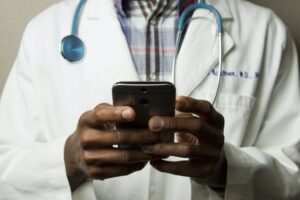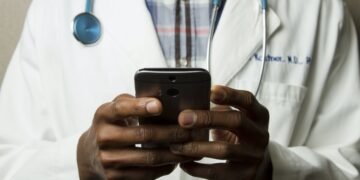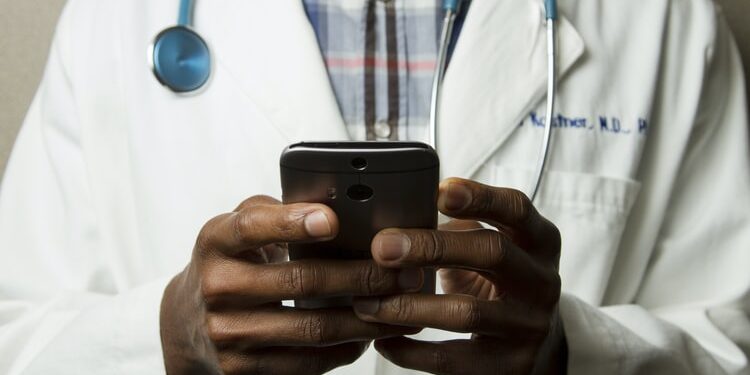
Doctors across Bangladesh have a new routine, very different from their usual routines of seeing patients at their chambers. Dr Maliha Nawar from Moghbazar, Dhaka and Dr Sadia Afrose from Nasirabad in Chittagong are two of theses new doctors.
Their new routine involves telephone calls, one after the other, with potential Covid-19
patients, or others facing critical dangers. Some of them worried, and most of them
terrified, either of this new unknown killer disease or their failure to get help under the
current predicament. Dr Nawar and Dr Afrose have the unenviable task of consoling
these patients, of trying to support them, offering medical advice that could potentially
save their lives.
But that’s what doctors do. Which begs the question: What is the first thing that you
think of, when you think of doctors?
Do you think of them as heroes? Men and women who serve people in need, who save
lives, who work to make any nation healthier?
In Bangladesh, doctors have not always enjoyed the most stellar reputations, perhaps
with good reason. Who hasn’t had the experience of waiting for hours at a doctor’s
chambers, then being seen for five minutes, asked to do a whole bunch of tests, and
take a whole bunch of medicines, without ever having been diagnosed with the issue in
the first place?
However, in the era of Covid-19 — the single most transformational event in our lifetimes
— it was no surprise to see unprecedented transformation. This transformation was not
just in terms of tasks, or processes, or how we worked and studied or did groceries.
No, this transformation, in many cases, was also in mentality, and nowhere was this
more apparent than in how thousands of doctors such as Dr Nawar and Dr Afrose
reacted in the fight against Covid-19. They were willing, they were eager, they were
ready to serve. It was not about money, or fame, or recognition, as doctors are often
accused of by the general public.
However, this brings the next question: Doctors were willing to help, but how is it that
they could be helping in the first place? After all, we were under strict lockdown. There
was no way for people to reach them. Or was there?
This is where technology steps in, this is where disruption and innovation become
necessary.
Bangladesh already had in place its 333 national hotline and it was doing a good job of
providing information to millions of Bangladeshis on government services. However, a2i
— the flagship program of the government’s Digital Bangladesh agenda — recognized
the need to repurpose this hotline during Covid-19, and it went through several
iterations including enabling people to self-report symptoms of the virus and information on whether the caller has been in contact with anybody with such symptoms.
However, perhaps its most significant iteration was transforming it into Bangladesh’s
largest telemedicine service, almost overnight, at unprecedented pace, and creating a
Doctor’s Pool.
The rapidly growing number of calls – which escalated from a few thousand to several
hundred thousand within a couple of weeks after the launch of the 333-based IVR
system – led to the need for a significant number of doctors to be on call to receive
them. But there were neither the means nor the mechanism to hire so many doctors.
a2i innovated the ‘Doctor’s Pool’ app – an Uber-like system where registered doctors
could sign in during their free time and offer their services ensuring their own safety and
maximizing their productivity through virtual visits in the face of a massive patient surge.
Over 4,000 doctors have since logged onto the system, doctors such as Dr Nawar and
Dr Afrose, to provide round the clock teleconsultations and services.
The most incredible part is that it was all on a voluntary basis, shattering the
preconceived notion that doctors are only in it for the money.
So what is it that compelled them to, voluntarily, give their time to patients? For Dr
Afrose and Dr Nawar, it was to be there for their nation and their people at this time of
need.
This time, doctors were embodying the Hippocratic Oath, a requirement for every doctor
and physician, that appeared to have been sadly lost from our doctors. Or so we
thought. Turns out, sometimes, it requires a global pandemic, an all-out crisis, togetherwith the right infrastructure in place, to confirm to us, once again, that humanity is not lost amongst our doctors.
Providing medical consultations over the phone is not new in Bangladesh. However, by
removing mental barriers (both amongst people in general and doctors alike), the
pandemic has created the ground for national scale up embodied in the formation of the
National Telemedicine Centre.
“I’m overwhelmed as I was able to help some people during the time of this crucial
period and as I could not work in the frontline, giving treatments or support to patients
over the phone helped me as well to contribute during the pandemic,” concluded Dr
Afrose when asked about her experience as a volunteer for the Doctor’s Pool, showing
that when purpose aligns with technology as an enabler and the right mentality, special
things happen.























































